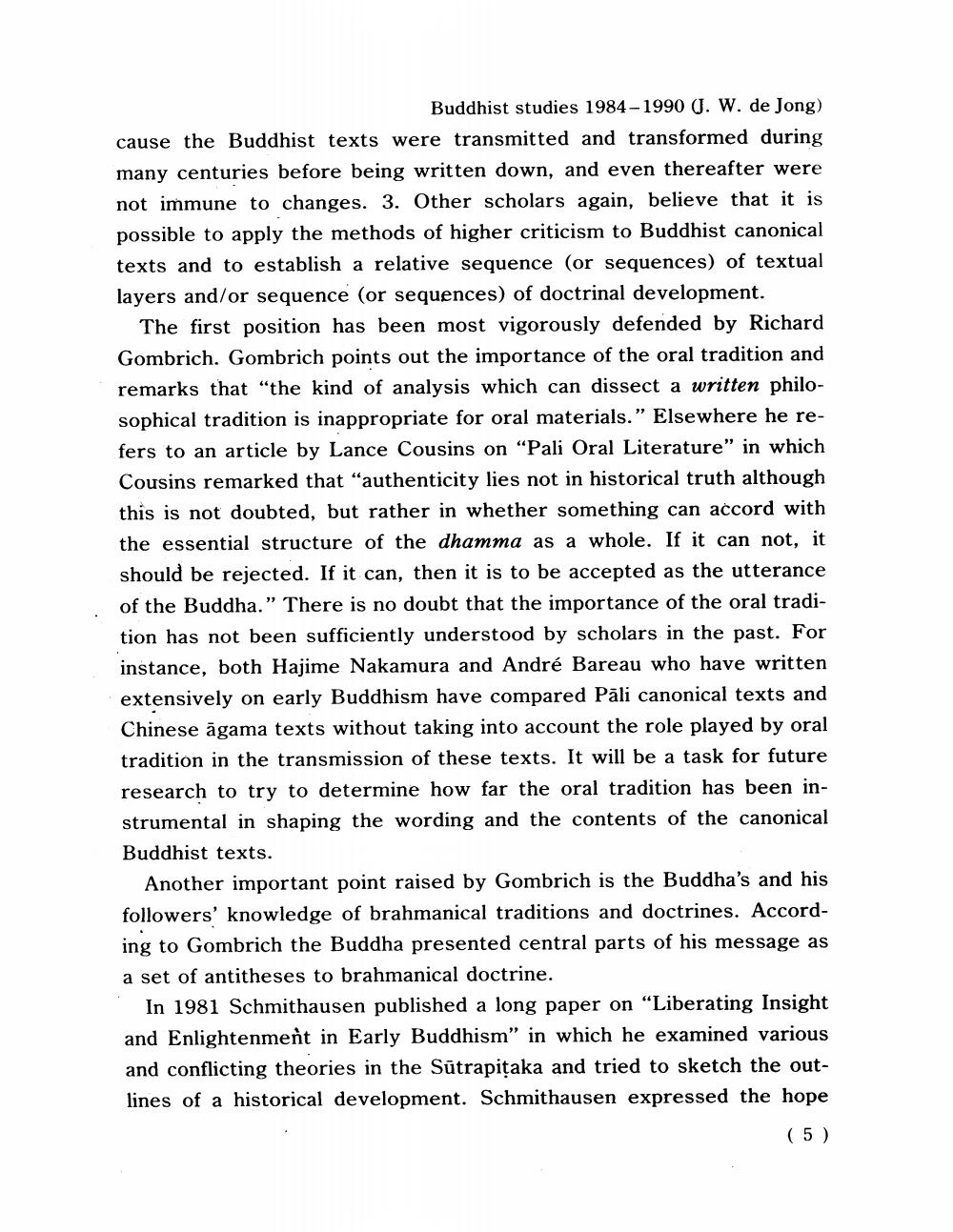Book Title: Buddhist Studies 1984 1990 Author(s): J W De Jong Publisher: J W De Jong View full book textPage 5
________________ Buddhist studies 1984-1990 (J. W. de Jong) cause the Buddhist texts were transmitted and transformed during many centuries before being written down, and even thereafter were not immune to changes. 3. Other scholars again, believe that it is possible to apply the methods of higher criticism to Buddhist canonical texts and to establish a relative sequence (or sequences) of textual layers and/or sequence (or sequences) of doctrinal development. The first position has been most vigorously defended by Richard Gombrich. Gombrich points out the importance of the oral tradition and remarks that “the kind of analysis which can dissect a written philosophical tradition is inappropriate for oral materials.” Elsewhere he refers to an article by Lance Cousins on “Pali Oral Literature" in which Cousins remarked that "authenticity lies not in historical truth although this is not doubted, but rather in whether something can accord with the essential structure of the dhamma as a whole. If it can not, it should be rejected. If it can, then it is to be accepted as the utterance of the Buddha." There is no doubt that the importance of the oral tradition has not been sufficiently understood by scholars in the past. For instance, both Hajime Nakamura and André Bareau who have written extensively on early Buddhism have compared Pāli canonical texts and Chinese āgama texts without taking into account the role played by oral tradition in the transmission of these texts. It will be a task for future research to try to determine how far the oral tradition has been instrumental in shaping the wording and the contents of the canonical Buddhist texts. Another important point raised by Gombrich is the Buddha's and his followers' knowledge of brahmanical traditions and doctrines. According to Gombrich the Buddha presented central parts of his message as a set of antitheses to brahmanical doctrine. In 1981 Schmithausen published a long paper on “Liberating Insight and Enlightenment in Early Buddhism" in which he examined various and conflicting theories in the Sūtrapițaka and tried to sketch the outlines of a historical development. Schmithausen expressed the hope (5)Page Navigation
1 ... 3 4 5 6 7 8 9 10 11 12 13 14 15 16 17 18 19 20 21 22 23 24 25 26 27 28 29 30 31 32 33 34 35 36 37 38 39 40 41 42 43 44 45 46 47 48 49 50 51 52 ... 60
